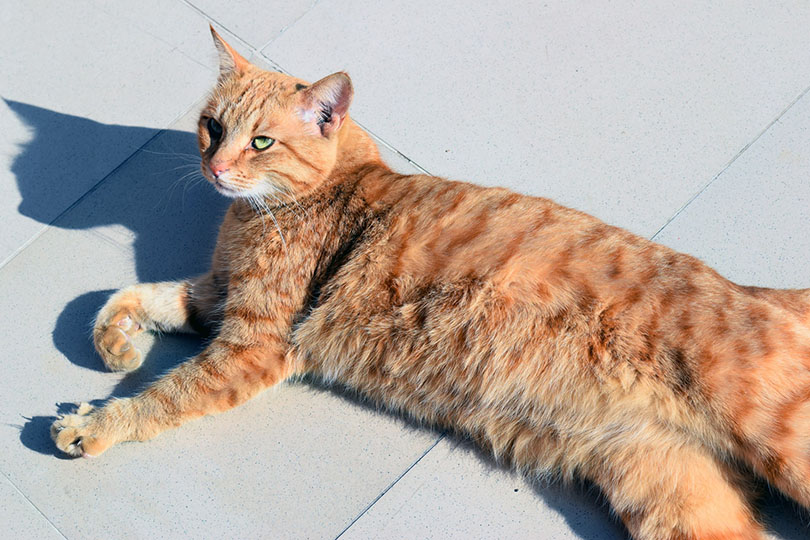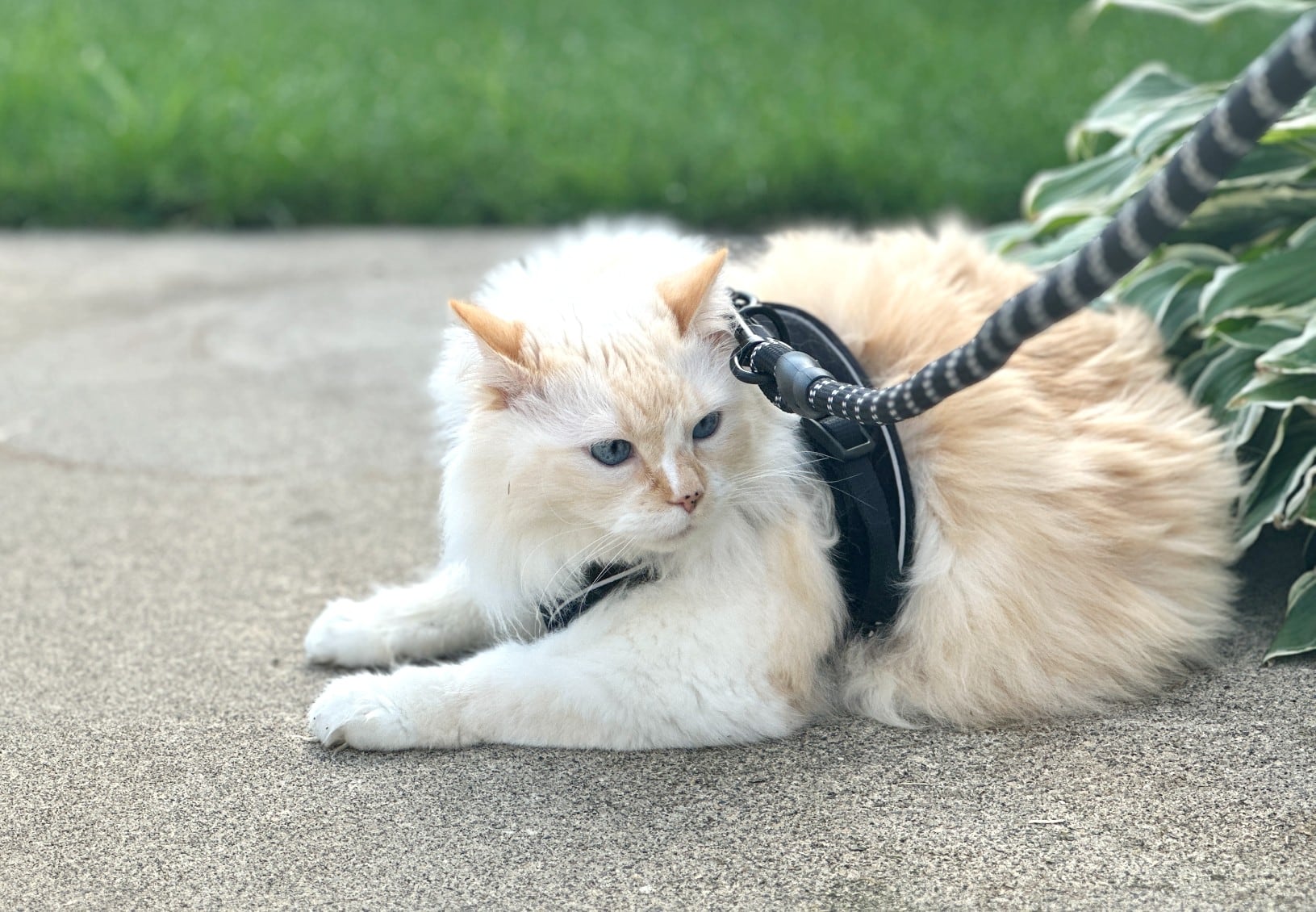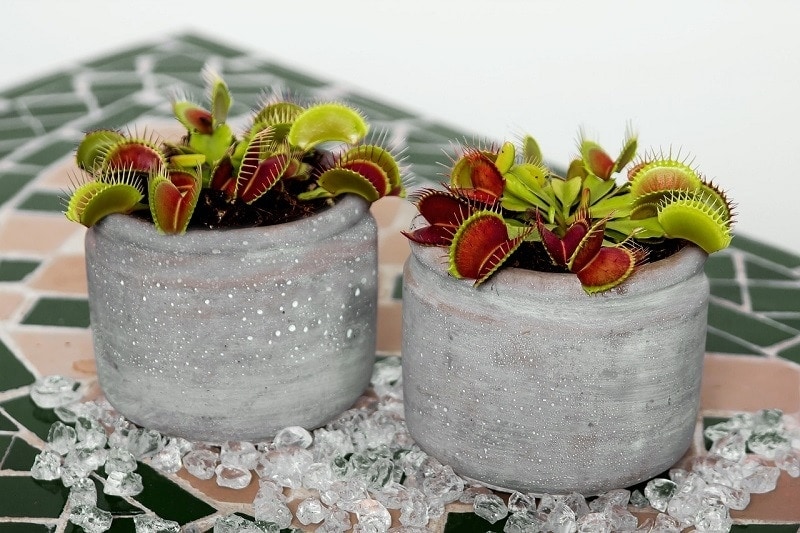Are Morning Glories Poisonous to Cats? Vet-Approved Risks & Facts

Updated on

Click to Skip Ahead
How Do Morning Glories Affect Animals?
Compounds That Make Some Morning Glories Mildly Poisonous
Lysergic Alkaloids Meaning
How Poisonous Are Morning Glory Seeds for Cats?
Are Morning Glory Leaves Poisonous for Cats?
Can Morning Glory Seeds Make My Cat High?
How To Tell If My Cat Has Been Poisoned By Morning Glories
Other Plants Are Poisonous for Cats
What To Do If I Suspect My Cat Has Been Poisoned
What is the Prognosis for a Cat that Has Been Poisoned By Morning Glories?
Morning Glory Poisoning Treatment
Prevention Tips
Morning Glories are beautiful, wide-mouthed, colorful flowers that can be seen blooming in gardens across the country. While they may be pretty to look at, they are potentially dangerous to many animals. This is because Morning Glories contain lysergic alkaloids which are poisonous to dogs, horses, and cats.
If you are a cat owner and you have these in your yard or neighborhood, it is important to be aware that these plants are potentially harmful to felines if ingested in large quantities. The consumption of several Morning Glories can cause vomiting, diarrhea, and even seizures in cats. If you suspect your kitty has eaten Morning Glories, contact your veterinarian immediately.
 What Are Morning Glories?
What Are Morning Glories?
Morning Glories are a type of trumpet-shaped flower that blooms in the morning. There are well over 1,000 types of Morning Glory, making it one of the most diverse plant families in the world. The flowers are usually pink, red, purple, white, or blue, and they usually grow on climbing vines.
They are generally thought of as popular garden flowers, and they can also be grown indoors, however, several species are invasive and banned from most parts of the United States.
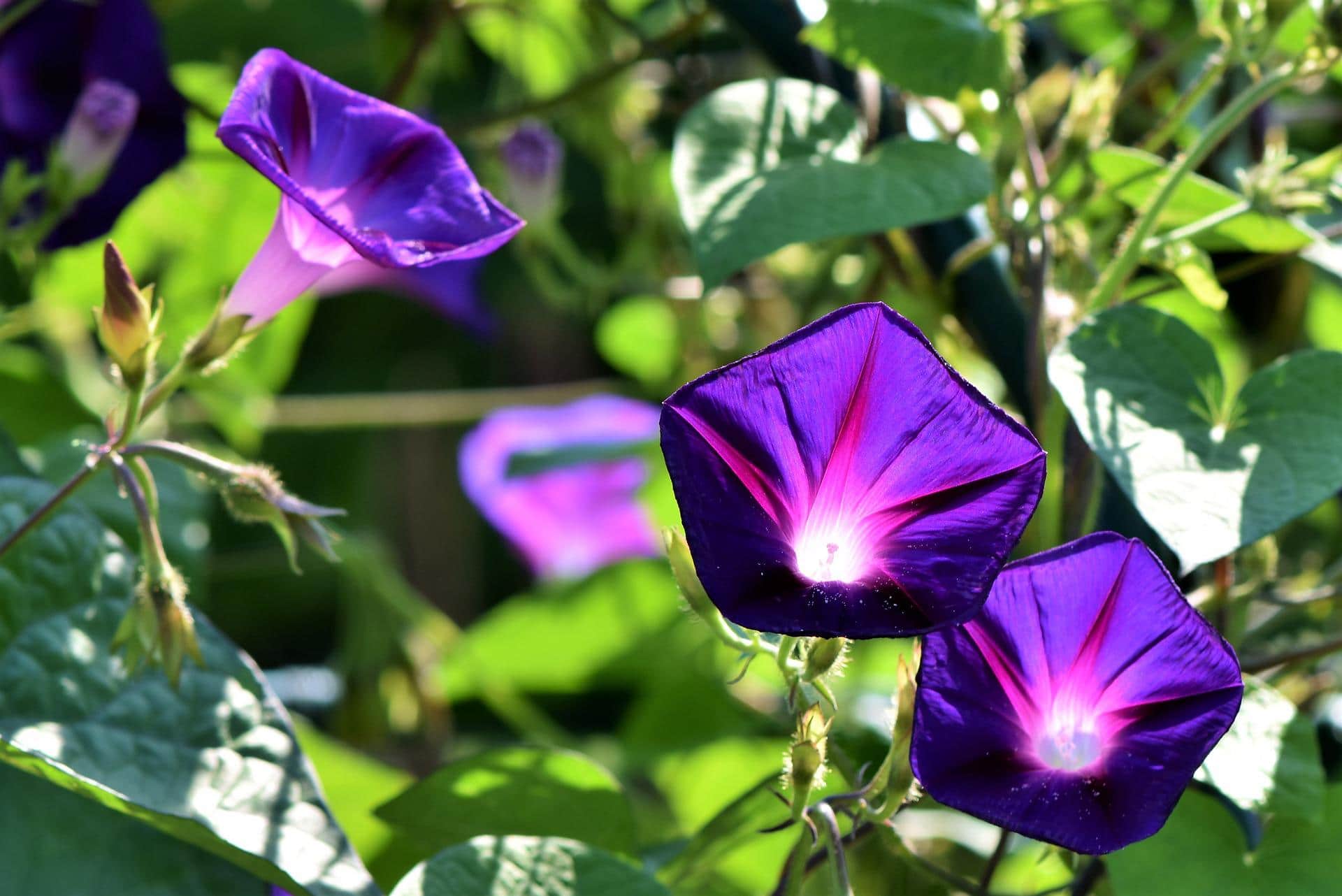
How Do Morning Glories Affect Animals?
With such a huge number of flowering plants in the family Convolvulaceae, different varieties of Morning Glories have very different characteristics and effects. Some of these plants can be safely eaten as food. For example, Water Spinach, or Water Morning Glory, is commonly used in Eastern and Southeast Asian cuisines as a green vegetable. On the other hand, Mexican Morning Glory seeds and Christmas vine Morning Glory seeds have psychedelic properties. These plants are used as traditional psychoactive medicines in many South American cultures.
A wide variety of Morning Glory contain low-toxicity poisons that are potentially dangerous to cats, dogs, horses, and humans. Still others, like the Ivy-leaved Morning Glory, are being studied as potential medicines to treat water retention, parasites, constipation, stomach disorders, fevers, headaches, and bronchitis.
Although some Morning Glories are harmless, some are definitely harmful. With such a diverse and powerful range of possible biological actions within the family Convolvulaceae, it is best to steer clear of ingesting any part of this plant and to keep it away from your furry companions.
What Compounds Make Some Morning Glories Mildly Poisonous?
The seeds of many Morning Glories contain alkaloids that are poisonous to many animals, including humans and cats. The lysergic alkaloids found in Morning Glories are a group of chemicals that have a variety of effects on the body. Some of these alkaloids are psychoactive, meaning they can change the way a person thinks or feels. Others are toxic and can be harmful if ingested in large quantities.

What Are Lysergic Alkaloids?
The specific effects of each alkaloid vary, but the ergoline alkaloids found in Morning Glories interact with the serotonin receptors in the brain, producing a hallucinogenic experience. This class of alkaloids is found in a variety of plants and substances, including the psychedelic drug LSD. The effects of these compounds can be unpredictable and can range from feelings of euphoria to extreme anxiety.
In large quantities, they work by disrupting the nervous system, causing symptoms such as dilated pupils, rapid heartbeat, nausea, vomiting, diarrhea, limb numbness, muscle tremors, and even unconsciousness.
How Poisonous Are Morning Glory Seeds for Cats?
The seeds of Morning Glory plants contain the bulk of the toxins that can make your cat sick. The toxins are present in all parts of the plant but are most concentrated in the seeds. For this reason, it is important to prevent your cat, and everyone else, from eating Morning Glory seeds. The seeds contain a chemical called lysergic acid amide (LSA), which is similar to the ingredient in LSD that can cause hallucinations.
In 2016, Morning Glory ingestion of large quantities of seeds sent a number of teens in Massachusetts to the emergency room. The bodies of cats are much smaller than humans, so a much lower number of seeds may have a negative effect on a cat. LSA can cause your cat a great deal of discomfort through cramping, nausea, and vomiting.

Are Morning Glory Leaves Poisonous for Cats?
Lysergic alkaloids are found in the leaves, stems, and flowers of the plant, so it’s important to avoid having your cat eat any part of it. It is common to see clinical signs of incoordination and agitation in cats that have consumed large numbers of seeds, whereas eating foliage generally results in mild diarrhea and vomiting.
Morning Glory flowers and leaves are often used in herbal remedies, but it’s vital to consult a doctor before taking any cures or preparations made from this plant. And you definitely shouldn’t feed any of this stuff to your cat!
Can Morning Glory Seeds Make My Cat High?
When a human ingests hundreds of these seeds, it can produce a psychoactive effect, including altered perception. While the effects of LSA in cats have not been studied extensively, it is more than reasonable to assume that the compound could also produce psychoactive effects in felines. It is therefore possible that ingesting Morning Glory seeds could make a cat high.

How Can I Tell If My Cat Has Been Poisoned By Morning Glories?
Cats can be affected by Morning Glories, but they are less likely to eat them than dogs because they are more selective about what they eat. However, if a cat has been poisoned by Morning Glories, they may experience vomiting, diarrhea, “drunk walking”, and tremors. It is important to take your cat to the veterinarian as soon as possible if you suspect they have been poisoned by Morning Glories.
What Other Plants Are Poisonous for Cats?
There are a variety of plants that are poisonous to cats. Some of the most common plants that are poisonous to cats include lilies, ivy, and poinsettias. These plants contain toxins that can cause serious health problems for cats if they consume them. Some of the symptoms may include vomiting, diarrhea, and seizures. In some cases, ingestion of these plants can be fatal.
It is important to keep any plants that are poisonous to cats away from where your cat spends time.
What Should I Do If I Suspect My Cat Has Been Poisoned?
If you believe that your cat has been poisoned, it is important that you take immediate action. The first thing you should do is take your cat to the veterinarian as soon as possible. The veterinarian will be able to determine whether or not they have been poisoned and will give them the necessary treatment. If your vet is not available you can also call the Animal Poison Control Center (APCC) at (888) 426-4435. The APCC is a 24-hour service that can help you determine whether your cat has been poisoned and if so, provide you with appropriate care advice.

What is the Prognosis for a Cat that Has Been Poisoned By Morning Glories?
The prognosis for a cat that has been poisoned by Morning Glories can be difficult to predict. The toxicity of the plant can vary depending on the species and the part of the plant ingested. Also, the amount of plant material eaten and the duration before treatment begins can also affect the outcome.
How Will My Veterinarian Treat Morning Glory Poisoning In My Cat?
Veterinarians have a variety of treatments for cats that have been poisoned. They may induce vomiting if the Morning Glories were ingested recently or give the cat activated charcoal to absorb the toxins in its system. The vet may also give the cat fluids to flush out the toxins and medications to help them recover. A cat under the influence of mood-altering drugs is at an elevated risk of harming itself.
Therefore, they may also sedate the cat if it is agitated due to the psychotropic chemicals in Morning Glories.
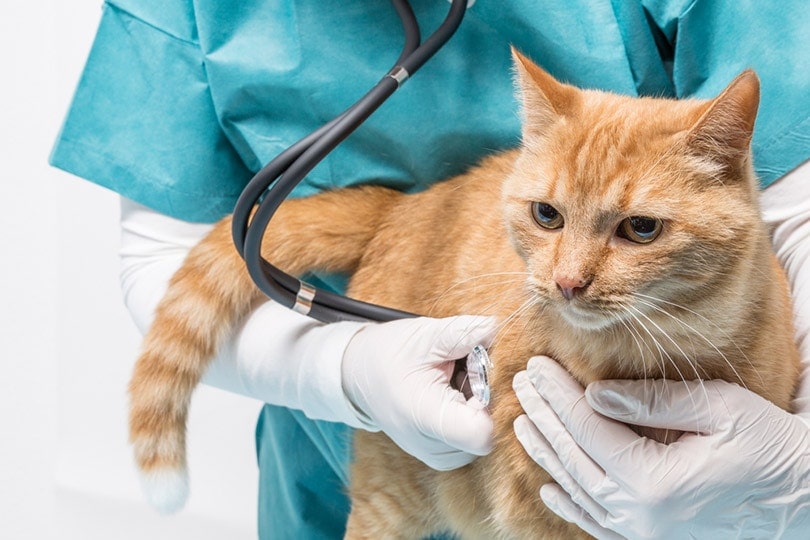
What Can You Do to Prevent Your Cat from Being Poisoned By Morning Glories?
If you must have morning glories and you have a cat, you can still take measures to prevent your cat from being poisoned by this plant. You can plant Morning Glory plants in a location where the cat is not allowed or that is out of reach for them.
You can also keep an eye on your cat when it is outside, and make sure that it doesn’t eat any plants that it may find while roaming around. But if they do ingest a morning glory, seek veterinary attention.
 Conclusion
Conclusion
Morning Glories are mildly poisonous for cats. While there are some serious risks associated with Morning Glory consumption, such as vomiting and diarrhea, they are generally not life-threatening. If your cat has consumed a small amount of this plant, there is no need to panic.
As always, it is important to keep an eye on your cat and monitor their behavior after eating any plant. Observe your cat’s health and if any negative symptoms occur, please consult your veterinarian.
Related Reads:
- Is Cat Palm Toxic to Cats? Keeping Your Cats Safe
- Is Eucalyptus Poisonous to Cats? Keeping Your Cats Safe
Featured Image Credit: oom_endro, Pixabay

 What Are Morning Glories?
What Are Morning Glories?